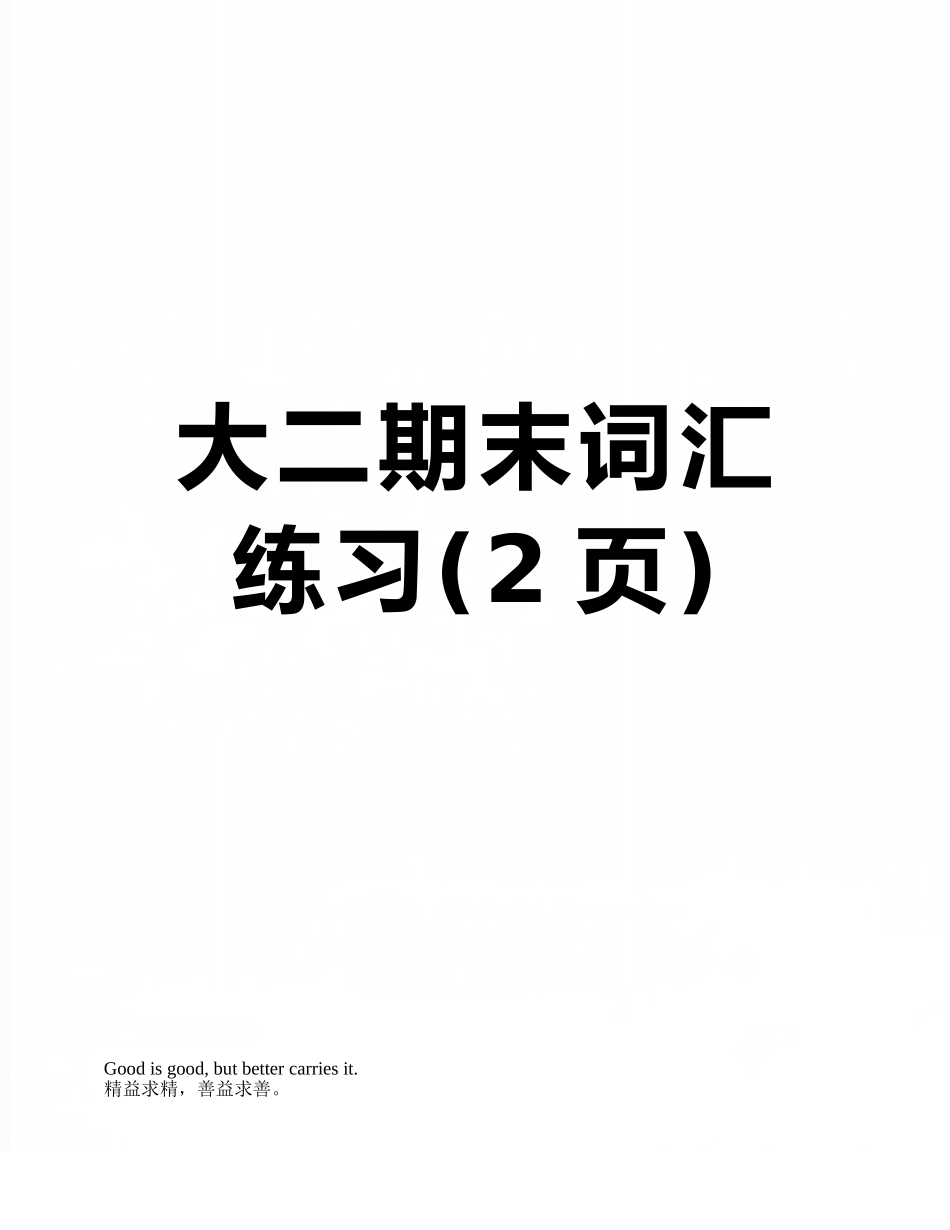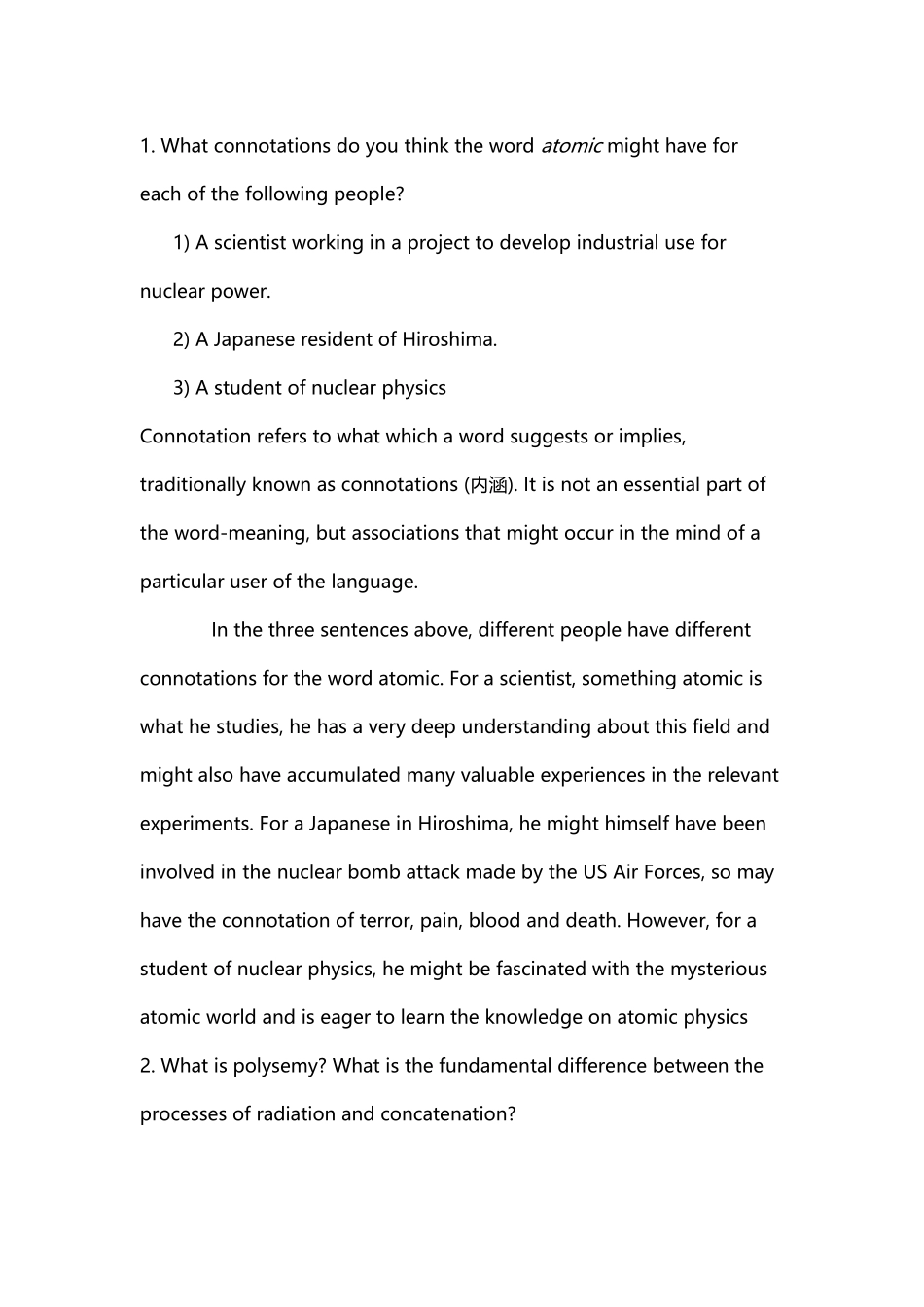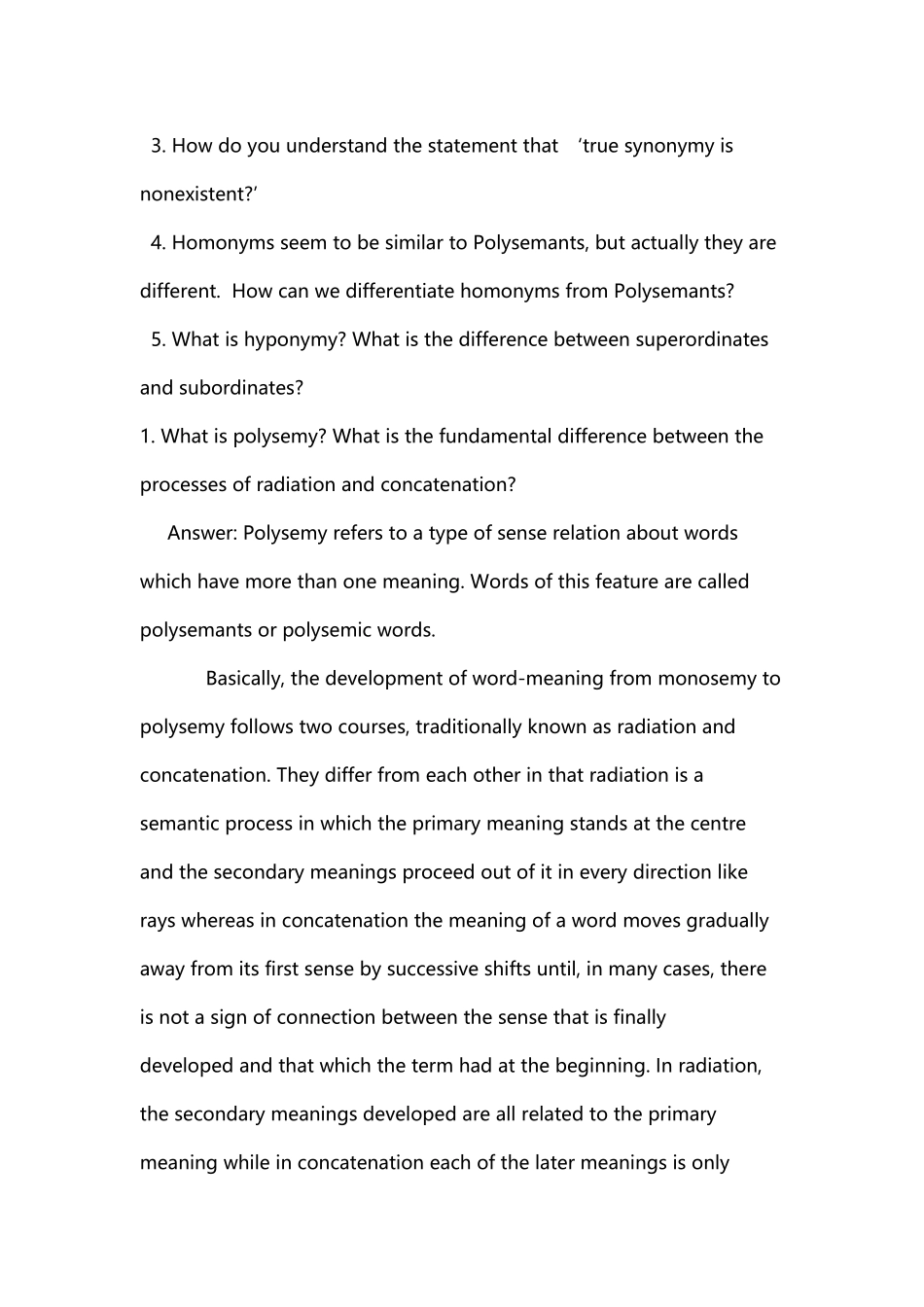大二期末词汇练习(2 页)Good is good, but better carries it.精益求精,善益求善。1. What connotations do you think the word atomic might have for each of the following people? 1) A scientist working in a project to develop industrial use for nuclear power. 2) A Japanese resident of Hiroshima. 3) A student of nuclear physicsConnotation refers to what which a word suggests or implies, traditionally known as connotations (内涵). It is not an essential part of the word-meaning, but associations that might occur in the mind of a particular user of the language. In the three sentences above, different people have different connotations for the word atomic. For a scientist, something atomic is what he studies, he has a very deep understanding about this field and might also have accumulated many valuable experiences in the relevant experiments. For a Japanese in Hiroshima, he might himself have been involved in the nuclear bomb attack made by the US Air Forces, so may have the connotation of terror, pain, blood and death. However, for a student of nuclear physics, he might be fascinated with the mysterious atomic world and is eager to learn the knowledge on atomic physics2. What is polysemy? What is the fundamental difference between the processes of radiation and concatenation? 3. How do you understand the statement that ‘true synonymy is nonexistent?’ 4. Homonyms seem to be similar to Polysemants, but actually they are different. How can we differentiate homonyms from Polysemants? 5. What is hyponymy? What is the difference between superordinates and subordinates?1. What is polysemy? What is the fundamental difference between the processes of radiation and concatenation? Answer: Polysemy refers to a type...


